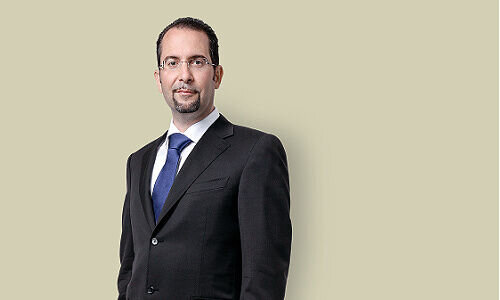Teodoro Cocca: «UBS – More Silicon Valley, Less Paradeplatz Please»
At UBS, new CEO Ralph Hamers' reputation for disruption precedes him. finews.asia columnist Teodoro Cocca looks at what upending wealth management could look like.
«Disrupt yourself, before someone else does it,» is said to be the motto of Ralph Hamers, who took the helm at the world's largest wealth manager five weeks ago. What could that mean for UBS' strategy? Undoubtedly, the Swiss bank's strategy groups are tussling with the question.
New CEOs normally review a company's existing strategy early on – and expectations are always high. Especially so if the CEO is being overseen by someone who has expressed no qualms about cannibalizing his own business for the sake of disruption.
What Does UBS Stand For?
Playing through the disruption of UBS' flagship wealth arm, several strategic ideas spring to mind. To start fundamentally: breaking down what basic service UBS provides that justifies its entrepreneurial existence.
A possible answer could be «Carry out your investments with us because it is better as a client through us than if you do so alone.» We can deduce from this «selling proposition» why banking clients are prepared to pay – often dearly – for banking services.
Increasingly Pressured
The pledge, of course, remains strategically anchored in UBS' view of wealth management and for the uppermost tier of clients in particular. The segment still requires a high degree of personalized service, despite the advances of digitization – and are willing to pay for it. By contrast, the case for personalized service is increasingly under pressure in the less-wealthy segments including affluent or core high net worth.
To put it simply, the super-rich's specific and detailed financial needs aren't easily captured by an impersonal digital solution, which at least today isn't at risk of replacing traditional advice. The opposite is true in the lower segments of wealth: clients looking to put $1 million to $2 million towards the stock market are increasingly wondering whether they need UBS' pricier services – a simple online broker will often do.
More Nuanced View
The tenure of «neo» CEO Hamers at Holland's ING is usually categorized as disruptive and linked to banks putting their revenue at the peril of cannibalization. A look back at ING's insurance strategy for its core banking business provides a more nuanced take.
ING based its online strategy on a dramatically reduced retail offering, with attractive conditions via a new channel. This isn't so much as cannibalize its existing revenue of ING as it did the cash cows of rival banks (deposits). In addition, ING targeted new markets and client segments that it hadn't before.
Additional Income Sources
The strategy was more disruptive for the competition than for ING, and it brought the bank additional sources of revenue that it hadn't previously been able to access. If we assume that Hamers follows the same playbook at UBS, the Swiss bank's strategy would be to provide a simple but global wealth management platform in sub-segments where it has no or only very few clients. This is true of the lower-wealth segments: affluent and high net worth.
This would raise the specter of cannibalization, though the threat would be limited: clients at UBS today prefer personal advice and aren't necessarily part of the traditional target market for a purely digital platform. Those currently making use of digital options tend to be future client generations as well as particularly tech-savvy users. Since UBS's market share of affluent clients is in the low single-digits, the danger of shooting itself in the foot with its clientele is limited.
Digital Mass Market
The potential to win clients off other banks in this segment is far larger. There may be a question of cannibalizing its brand or undermining the significance of UBS' cachet with the super-rich if UBS entered the digital mass market. Though UBS currently does cater in Switzerland to retail clients as well as the alpine nation's richest with the same name – without issue.
Could UBS manage a mammoth project like a global digital wealth management platform? Here, Hamers could fall back on a second strategic component from his past. If UBS's current business model has extrapolated Silicon Valley, digital thinkers would certainly envision a global ecosystem, in which a network or web of partnerships is key.
Strategic Vision
Let's consider Facebook's approach to its new digital project Libra, where a consortium of major financial services players initially gathered around one provider. Who are UBS' kindred spirit partners for a global digital platform? It's worth noting that no provider has yet attempted a European digital wealth platform, much less a global one.
The strategic vision isn't far-fetched, nor does the frequently-touted banker argument of regulatory concerns really refute the idea either. After all, UBS is already active in at least 50 countries around the world – regulatory hurdles can be surmounted.
Alibaba Over Goldman
If UBS had its druthers for partners, or unlimited capital for an acquisition, which company would it buy or take a stake in tomorrow? Goldman Sachs, Google, or Paypal? All certainly attractive candidates and each would stand for very different strategies.
A Goldman deal would be the pursuit of a strategy rooted in traditional banking; a big tech deal would be visionary and genuinely disruptive. Along the same lines, a cooperation with Alibaba's fintech arm, Ant Financial, which recently postponed its listing, would be a better option than Google et al.
Unattainable Market Cap
Of course, these scenarios remain the stuff of dreams: Ant Financial's market capitalization is already unattainable for the Swiss bank ($300 billion vs UBS' $49 billion). However, Ant illustrates where banking's mass-market may move in the coming years, and how investments mainly in mass and affluent segments are likely to follow.
Any traditional banker's reaction is likely to be denial: completely unrealistic thinking, absurd, entirely different clients and totally different business. OK, then let's turn the equation around: what if Ant Financial began cooperating with Blackrock or Goldman Sachs?
Enormous Potential
Even a full takeover is within the realm of financial possibility: Ant's market cap dwarfs Blackrock and Goldman's combined. Would UBS truly not be worried about the deal if one of its global peers did it? It is hardly possible UBS wouldn't be alarmed at such a move.
The possibilities of scale with a purely digital wealth platform are humongous. If Hamers takes the view of doing it before anyone else does, then suddenly no longer appear absurd for UBS to think in this direction.
More Silicon Valley, Less Paradeplatz
Hamers' affinity for numbers harks back to his studies in econometrics. UBS had a CEO with a degree in econometrics before – Marcel Rohner – who brought the bank to the verge of going under in 2008. This time, UBS is in a far more secure state, well-run, and generates stable revenues.
This won't be enough in the long run to enliven its shares. Hamers recognizes this, and it's also part of the reason UBS named a CEO like him. As soon as the dust from the pandemic-induced crisis has settled, plans and initiatives that are currently on hold due to global uncertainty will be back on the table, with the banking industry in the midst of it. UBS has no lack of innovation and vision today.
New Markets, New Partners
What it is however lacking are courageous decisions to take one of the rafts of attempts and experiments – many of them successful – and roll it out as a whole entity with entrepreneurial conviction. UBS probably won't practice disruption, in the true sense of the word, while Ralph Hamers is CEO either.
But the implementation of a strategy that taps new markets and partnerships and isn't afraid to think big, as the DNA of Silicon Valley dictates, would fit the ambitions of wealth management's number-one as well as the Swiss financial center.

Teodoro Cocca is a professor for asset and wealth management at Johannes Kepler University in Linz. Before joining the university in 2006, he worked in investment and private banking at Citibank for a number of years. He was a researcher at Stern School of Business in New York and a lecturer at Swiss Banking Institute in Zurich. The Swiss, who has Italian roots, is an adjunct professor for private banking at Swiss Finance Institute (SFI) in Zurich. He advises financial firms and government bodies in Switzerland and abroad. Since April 2011, Cocca has been a member of the board at VP Bank in Vaduz and heads the bank’s strategy and digitization committee. He writes a regular column for finews.com.


























